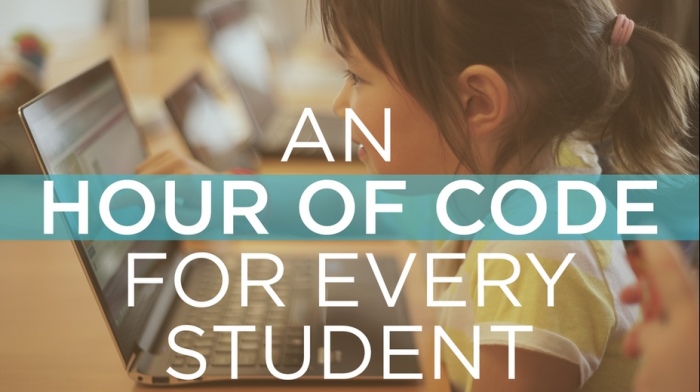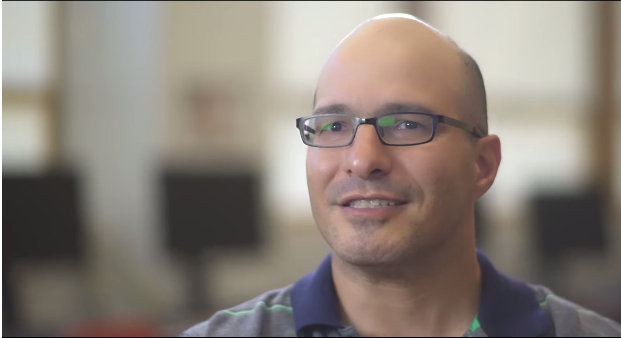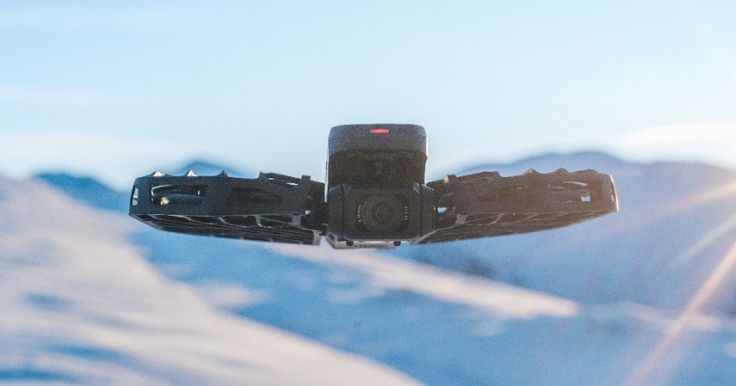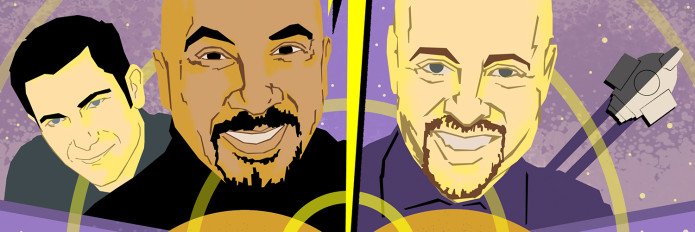
Last year Code.org co-founder and CEO Hadi Partovi told Forbes that computer science was essentially, “…the next step up from Legos.” Coding involves creative problem solving—the way most multiple-choice tests and typical school curriculums, for that matter, don’t. Partovi co-founded Code.org with his brother Ali, to help introduce coding to students and make learning computer science as integral as math, or even the ABC’s.
Code.org launched An Hour of Code on Indiegogo with hopes of spreading computer education to 100 million students across the globe. It’s a lofty goal, but one within reach: Today Silicon Valley influencers Mark Zuckerberg, John Doerr, and Rich Barton contributed a collective $1.25 million, which—including match contributions by Microsoft, Google, Salesforce and others—bumps the total funds raised to $2,344,904, to date.
We caught up with Partovi, to learn more about his inspiration, An Hour of Code, and how Code.org is about to change the world.
~~~
Indiegogo: You’ve been quoted as having tech in your blood. What was your first introduction?
Hadi Partovi: My father was the founding first professor at Sharif University of Technology in Tehran, Iran. It’s now the leading tech university in Iran, and one of the top-ten tech universities in the world. My father hired all the teaching staff when he was there. I grew up with it.
IGG: And you learned to program when you were just 10-years-old?
HP: Yes. My father gave us (Hadi and brother, Ali) a computer, and told us that if we wanted to play video games, we had to build them ourselves. This was in the early 80’s, so before the World Wide Web. Back then we had to learn it from a book.
IGG: That’s intense. Did you find coding difficult then, and/or did you enjoy it?
HP: It was only exciting. Most people think of computer programming as black magic; they’ll mentally put it in the same bucket as calculus, and physics. But it’s really as easy as learning the alphabet. Once you teach the computer to say the most basic thing: “Hello World,” you realize you can tell this computer what to do. It’s not very difficult; it’s very empowering.
IGG: You’ve mentioned how learning to code can help actualize the American dream. When did you move to the U.S.?
HP: We lived in Iran until 1984. The revolution changed the country tremendously. There was a totalitarian regime. I was about to turn 12 when we left. Once you’re 13 you can’t leave, because you’re set to join the army. My family wasn’t a big fan of war, so we moved to Westchester County, just north of New York City. My father was able to continue his work, and moved into a research position at MIT and Harvard.
IGG: Was that when you first noticed problems with school curriculums?
HP: I didn’t think about it when I was little. But when I graduated from college—anyone in tech recognizes the shortage of tech graduates. Companies are always seeking engineers—and it’s for all kinds of industries. There’s a deep need for computer science. What’s interesting, though, is that while the need has grown, there are slightly fewer computer science students now than there were 10 years ago. There are more jobs than there are computer science graduates. It doesn’t make sense. I realized our education system hadn’t caught up with the new century.
The U.S., while leading in tech, is behind when it comes to computer science education. Where I went to school (in Iran), the majority of kids learn something computer related. Iran is actually ahead of us in computer programming. The U.K. is also ahead of us. Computer science is built-in as part of the entire school curriculum. It’s a new field, though. Every part of the world needs to catch up.
IGG: How did seeing the need translate into starting Code.org?
HP: Code.org launched 1.5 years ago, and it started with a viral video. It was so popular, 20,000 schools reached out, wanting help adding coding to the curriculum. We formed Code.org to help them.
For me, personally, I was at a point in life where I had successful investments—and free time. I created the original video as a hobby. I thought it would be a nice, six-month project. The response was overwhelming, though, and I quickly realized it was more than a hobby!
IGG: So now you’re literally about to change education on a global scale. That’s incredibly huge. What do you see as next steps?
HP: With An Hour of Code, the aim is to educate 100 million students. Beyond that, the goal is to put courses in 50,000 classrooms worldwide. We need money for that—to get computer science taught in every school, and woven into the educational fabric. It’s the schools’ jobs to teach our kids.
An Hour of Code is just a teaser, to help kids realize they can learn to code, and to help teachers realize kids can do it. It’s fun—more fun than trigonometry, and many traditional things kids learn.
The 10-year goal: We’re growing fast, but of course changing education is really hard. We’re adding something new to the curriculum. That’s never happened, so to do it in 10 years would be amazing.
IGG: Why did Code.org choose to run a campaign on Indiegogo?
HP: Last year was the first year we did the campaign. Our biggest challenge is people think fundraising is easy. Indiegogo has made it easy, though. We’ve stated a clear goal, and there are matching donors. This gives us a focused effort, and helps raise awareness, too.
IGG: What’s next for you?
HP: Code.org is my only full-time job. It’s already had an incredible impact. We’ve already introduced 45 million kids to An Hour of Code. That’s somewhat unheard of in terms of the pace of change. Kids who didn’t have hope for what education could give them, now can dream. We teach kids how the digestive system works, so now we’re also teaching them how an algorithm works. It’s just as relevant as say, learning photosynthesis. What’s most important, is that there won’t be as much intimidation surrounding computer science.
This is the biggest thing I’ve ever done—changing the way education works, on a global scale.
For more information on how you can help, and expand education on a global scale, visit An Hour of Code to contribute.
5 Responses
You must be logged in to post a comment.




Have you planned for PHD in USA? Are you planning to go to the US for your doctorate degree? Then you should get ready for your master degree level. After completing the master degree, you can apply for Ph.D. in the USA. You can get a life changing the opportunity to complete your doctorate in the USA by applying for the Ph.D. The Application process for Ph.D. in USA is not as tougher as generally students’ think.
If you are ready to apply for Ph.D. in United States of America then first of all set your statement of purpose (SOP). If your subject of interest is not matched with a professor, then the chance of your selection is minimal. You can mention on your SOP showing your interest on latest issues related to your study or unusual shortcomings.
Ph.D. Abroad after Masters is no more complicating for the students like you. Always choose as many universities as you can for applying your papers of research. If you cannot get the chance to one or two best options you are generally looking for then there should be another universities where you can apply.
Get more details at https://www.meetuniversity.com/blog/how-to-apply-for-ph-d-in-the-usa-after-masters-phd-in-usa/#.VrMGZtV97IU
you are fraud you stole 100.00 without permission i am trying to call FBI i am glad to get 100.00 refund but i don’t like your weak security to protect my visa number so i delete my checking account you should use user name and password none of them at all give me your full address thank you
https://www.indiegogo.com/projects/struggling-to-survive-an-invisible-illness/x/8665451
I’m struggling to survive Gastroparesis. Simply explained, this is a disorder that slows or stops the movement of food from the stomach to the small intestine. Within our bodies is the vagus nerve that controls the muscles of the stomach that normally contract to break up food and move it through the gastrointestinal tract as well as the hormones and enzymes that helps us digest food. It goes deeper than this, however, also controlling our involuntary functions such as breathing, blood pressure, swallowing and heart rate. Even our emotions are affected by it. Gastroparesis occurs when that nerve becomes damaged by injury/illness and the stomach muscles cease to contract normally. This slows or all together stops movement of food from the stomach to the small intestine. Any support at this time would be greatly appreciated, since I’ll be trying a trial of meds in the next few weeks and if my electrolytes are not strong enough it could cause potential heart damage/failure. This is an invisible yet life threatening condition, and many who have it appear normal; the photo of my progressive weight loss is only a small representation of my deterioration.
Hello Everyone,
Each year thousands are killed due to drunk and intoxicated driving. It causes each American tax payer over $500 per year, which results to over $100 BILLION spent on drunk driving accidents!!!!
Now that I have your attention, let me introduce myself. My name is Shaheed Bailey and I started a company called Sober Stroller, Inc. I am a 27 year old entrepreneur from New Jersey that knows all to much about drunk driving. In 2011 I was coming from a bar in New Jersey and was very intoxicated. I of course didn’t think I was drunk and thought to myself that I was in good condition to drive. Long story short, myself and my friends jumped into my car and started to drive. I fell asleep at the wheel and crashed into a family of four. I almost killed everyone in my car and that innocent family of four that was just trying to get home. That’s the terrible part about drunk driving, others always get hurt or sometime die. They are innocent and have nothing to do with our carelessness and irresponsible actions and decisions. I was charged with a DUI, mountains of fines, loss of license, probation and $17,000 in damage to my car. It is was hard to get a job because I had a DUI my insurance premium is THROUGH THE ROOF! I thought long and hard and said instead of being the cause, let me become a part of the solution. Myself along with my partner and Co-Founder Jerrell Mann decided to start Sober Stroller. Sober Stroller is a ridesharing company that provides those too intoxicated to drive with our independent drives to ensure a safe ride home. Our goal is to provide safe and affordable rides and create awareness of drunk driving. No one is prone to drunk driving or the consequences that come with it. Unfortunately, most people think how I thought, they feel they are fine to drive and forget that it’s not only their life that’s endanger, but others as well.
We recently launched a crowdfunding campaign on Indiegogo to help raise capital for our company. We need to finished the development of our app and acquire larger office space. Please help by visiting our crowdfunding campaign and backing our campaign. Here’s the link
https://igg.me/at/soberstroller/x/8926468 Please share with your friends and family, you never know whose life you can save by helping our company provide the needed service.
I remember the excitement I got when I was 14 an we were allowed to go to the class at school which had computers in it. Now days kids grow up with it but it is amazing how many can’t speak the language. It is a great idea this project.
All we need now is to make the internet a free download zone so people can enjoy themselves on the web more. https://igg.me/at/MDCF/x/8966845